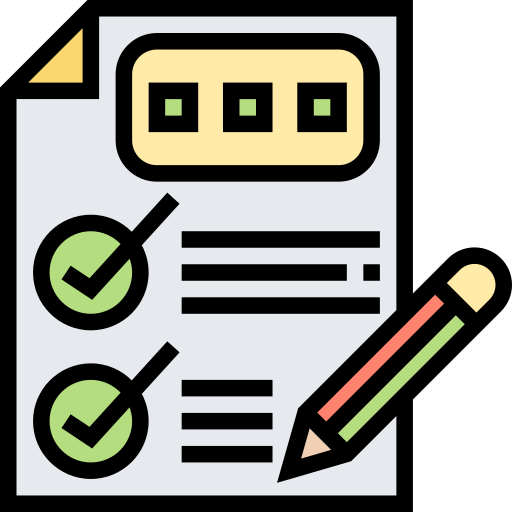South Africa is a country that has people of several races. There are black people who belong to South Africa, whites who came there to settle, and Indians who came as labourers and traders.
Maya Naidoo, an eleven-year old South African girl living in the town of Johannesburg, was helping her mother clear up her old boxes. She found a scrapbook full of pictures and newspaper articles. There were many pictures of a young schoolboy of around fifteen years of age. When she asked her mother who the boy was, she was told that he was called, Hector Ndlovu.He had been shot by the police. Maya was shocked. “Why?” she asked. Her mother explained that South Africa was earlier governed by apartheid laws. Apartheid means separation on the basis of race. South African people were divided into white, black, Indian and coloured races. According to the law, these races were not allowed to mingle with each other, to live near each other or even to use common facilities. Maya could not believe her ears. Maya’s mother sounded angry when she spoke about life under apartheid. She told Maya that in those days hospitals were separate and so were ambulances. An ambulance meant for white people would always be well equipped while one meant for black people was not. There were separate trains and buses. Even the busstops were different for black and white people. Non-whites were not allowed to vote. The best land in the country was reserved for the white people, and non- whites had to live on the worst available land. Thus blacks and coloured people were not considered to be equal to whites. One black township was the south western township or Soweto. Hector Ndlovu lived here and he and his classmates joined the protest against learning the Afrikaans language in school. This was the language that the whites spoke. Hector and other school students were being forced to learn this language but they wanted to learn their own language, Zulu. The South African police beat up the protestors mercilessly and shot at the crowd. One of their bullets killed Hector. This was on 30th of April,1976. The African National Congress, a group of people who led the struggle against apartheid, and their most well known leader, Nelson Mandela fought the apartheid system for several years. Finally, they succeeded and in 1994 South Africa became a democratic country in which people of all races were considered equal.
PARTICIPATION
Through voting in elections people elect leaders to represent them. These representatives take decisions on behalf of the people. In doing so it is assumed that they will keep in mind the voices and interests of the people.
All governments are elected for fixed periods. In India this period is five years. Once elected, governments can stay in power only for that period. If they want to continue to be in power then they have to be re-elected by the people. This is a moment when people can sense their power in a democracy. In this way the power of the government gets limited by regular elections.
Other ways of participating
Elections are usually held once in five years. Besides voting there are other ways of participating in the process of government. People participate by taking an interest in the working of the government and by criticising it when required. In August 2005, when a particular government increased the money people had to pay for electricity, people expressed their disapproval very sharply. They took out rallies and also organised a signature campaign. The government tried to explain and defend its decision but finally listened to the people’s opinion and withdrew the increase. The government had to change its decision because it is responsible to the people. There are many ways in which people express their views and make governments understand what actions they should take. These include dharnas, rallies, strikes, signature campaigns etc. Things that are unfair and unjust are also brought forward. Newspapers, magazines and TV also play a role in discussing government issues and responsibilities. While it is true that a democracy allows people to participate, it is also true that not all sections of people are actually able to do so. Another way for people to participate is by organising themselves into social movements that seek to challenge the government and its functioning. Members of the minority community, dalits, adivasis, women and others are often able to participate in this manner. If a country’s people are alert and interested in how the country is run, the democratic character of the government of that country will be stronger.
NEED TO RESOLVE CONFLICT
Conflicts occur when people of different cultures, religions, regions or economic backgrounds do not get along with each other, or when some among them feel they are being discriminated against. People may use violent means to settle their differences. This leads to fear and tension among others living in an area. The government is responsible for helping to resolve conflicts.
The Indian Constitution lays down the basic rules or laws that have to be followed by everyone. These laws are for both the government and the people. Conflicts and differences have to be resolved according to these laws.
Religious processions and celebrations can sometimes lead to conflicts. For example, the route a procession takes may lead to a conflict. The government, particularly the police play an important role in getting representatives of concerned communities to meet and try and arrive at a solution. At times there is fear that violence may erupt, with people throwing stones or trying to disrupt the procession. The police is responsible for ensuring that violence does not take place.
Rivers too can become a source of conflict between states. A river may begin in one place, flow through another and end in a third. The sharing of river water between different places that the river goes through is becoming an issue of conflict. For example you may have heard about the Cauvery water dispute between Karnataka and Tamil Nadu. The water stored in Krishnasagar dam in Karnataka is used for irrigating a number of districts and for meeting the needs of the city of Bangalore. The water stored in Mettur dam in Tamil Nadu is used for crops grown in the delta region of that state. A conflict arises because both dams are on the same river. The downstream dam in Tamil Nadu can only be filled up if water is released from the upstream one located in Karnataka. Therefore, both states can’t get as much water as they need for people in their states. This leads to conflict. The central government has to step in and see that a fair distribution is worked out for both states.
EQUALITY AND JUSTICE
One of the key ideas of a democratic government is its commitment to equality and justice. Equality and justice are inseparable. The earlier practice of untouchability is now banned by law. This group of people were denied education, transport or medical facilities and even the chance to offer prayers. Dr Ambedkar and many others like him, realised that such practices must not continue and that justice can only be achieved when people are treated equally. The government also recognises this and makes special provisions for groups within society that are unequal.
For instance, in our society there is a general tendency to value and care for the boy child more than the girl child. This means that society does not value the girl and boy child equally and this is unjust. In this context the government steps in to promote justice by providing special provisions that can enable girls to overcome the injustice that they are subjected to. Thus it is possible that fees for girls might be waived or lowered in government schools or colleges.









